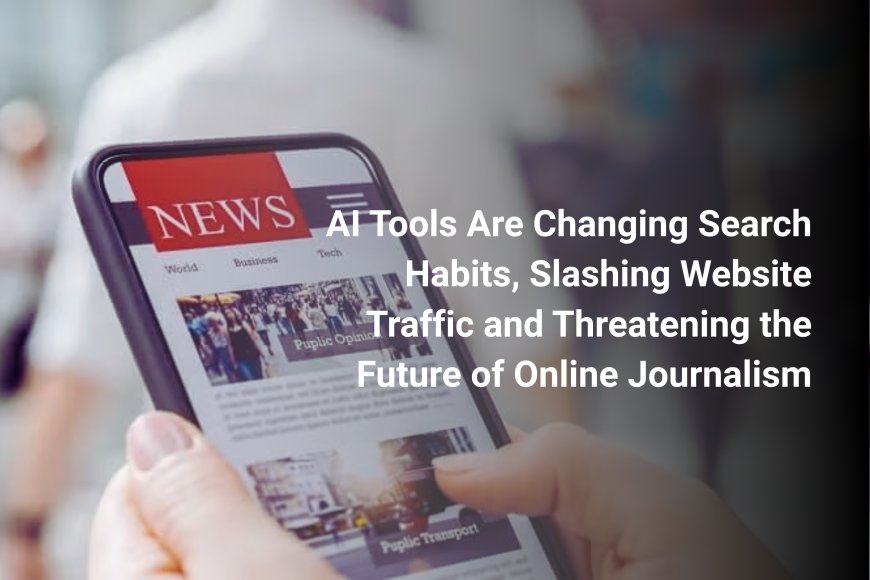AI Tools Are Changing Search Habits, Slashing Website Traffic and Threatening the Future of Online Journalism
Generative AI tools are reducing news site traffic by offering summaries, cutting into ad revenue and subscriptions, and forcing publishers to rethink strategies, partnerships, and legal actions to survive.

The rise of AI tools like as ChatGPT is slowly changing the way people seek for news and information online, posing major obstacles for news websites.
Traditionally, when individuals looked for something on Google, they would follow links to news websites and read full stories. But today, Google and other platforms are displaying AI-generated summaries at the top of search results.These summaries frequently provide enough information without requiring viewers to go through to the full news source.
According to a Pew Research Centre study, individuals click on links 50% less frequently when AI summaries are displayed. For news websites, this is a serious issue.They rely on visitors to generate revenue through advertising and paid memberships. If fewer people visit their websites, their income decreases.
According to experts, the current pattern will continue and has the potential to completely alter the internet.Some websites are experimenting with new tactics such as Generative Engine Optimisation (GEO), which involves producing information in a way that AI models can read and interpret. They are also posting more on forums and social media, where AI systems search for information.
However, there is a heated discussion going on should websites allow AI bots to use their content at all? Some people are now blocking these bots to protect their work. Others choose to leave their content open in the hopes of reaching more readers, even if the outcomes aren't always ideal.
There are also legal disputes underway. The New York Times is suing OpenAI and Microsoft, alleging that its information was used without reasonable compensation. Some corporations have reached agreements, such as Google with the Associated Press, but many issues remain.
A major concern is that younger individuals, particularly those under the age of 25, are increasingly relying on artificial intelligence to obtain news. However, if AI does not always show where the news comes from, consumers may be unsure what is true or trustworthy.
In the end, experts agree on one point that AI requires actual journalism to exist. Without reporters doing the hard work, AI tools would have nothing to summarise.
Information referenced in this article is from The Hindu







